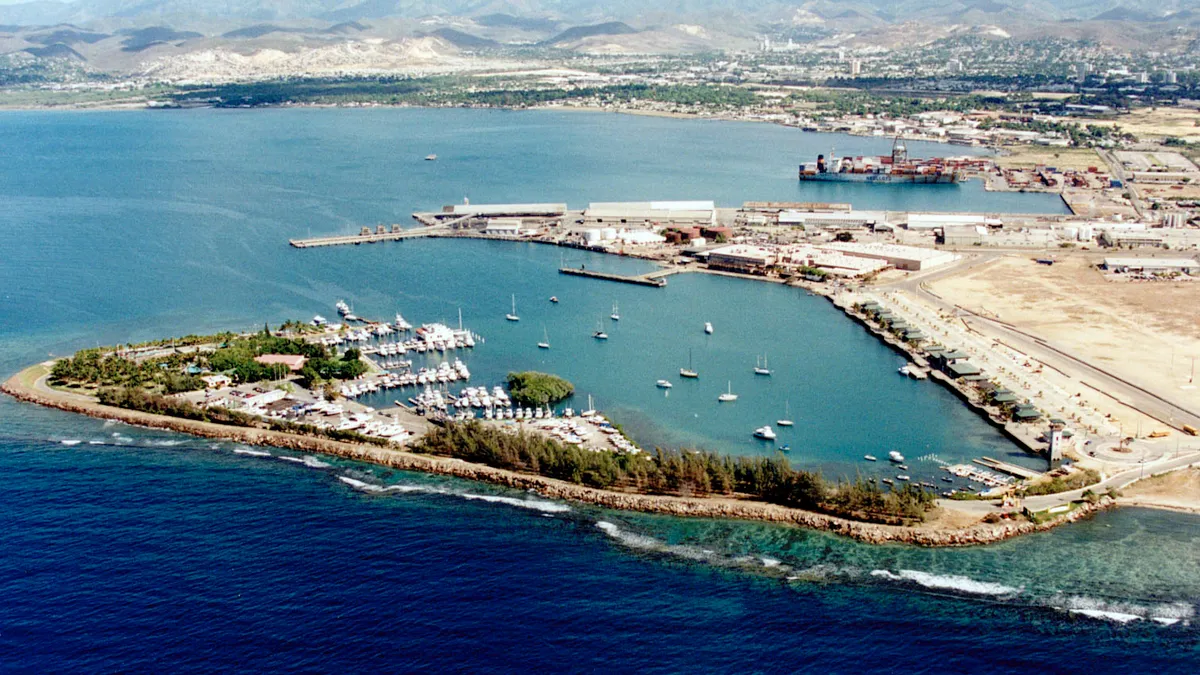Puerto Rico never recovered from the 2008 recession.
The Commonwealth of Puerto Rico’s unemployment rate was 13.8% for May, compared to 6.3% for the U.S. mainland, and the island’s 2013 per capita income was $17,636, 61% below the U.S.’s $44,712.
The island's main utility, the Puerto Rico Electric Power Authority (PREPA), was also hit hard and has yet to recover. Although a vital $671 million credit line needed to buy fuel was just extended until March 2015, the utility is facing bankruptcy.
The economy
Efforts to stimulate the island's economy have floundered. In July, Moody’s, Standard and Poor’s, and Fitch’s downgraded $61 billion of the Commonwealth’s debt to junk bond status. That caused new interest rates that “hinder and depress economic activity,” Moody’s subsequently wrote.
The island’s economy “continues to stagnate and provides little hope for revenue growth,” Moody’s reported, and it is “too weak to absorb further tax hikes or utility rate increases.”
In June, the Commonwealth passed the Recovery Act, a new bankruptcy law allowing PREPA to restructure its debt. That means Puerto Rico’s longstanding “willingness to meet debt obligations” has been replaced by a “decreased willingness to pay bondholders,” Moody’s explained.
PREPA’s challenges
PREPA faces unique challenges. Like many resource-poor island nations, the Commonwealth’s electricity is largely generated with oil imported from Brazil. Its $0.24 per kilowatt-hour electricity rate is twice the average mainland electricity price of $0.12 per kilowatt-hour.
Most analysts agree a shift to more affordable natural gas and domestically generated renewables is the way out for PREPA in the long term. One analysis found Puerto Rico could reduce its $2.6 billion in oil costs by $1 billion with a shift to natural gas. But political and regulatory obstacles have so far blocked Governor Alejandro Garcia Padilla’s efforts to make that happen.
Most utilities are barred by law from selling or mortgaging hard assets, so they raise debt financing by pledging future revenues, explained Chadbourne & Parke Partner Lawrence LaRose.
To date, PREPA has accrued over $9 billion in debt. Though it is one of the biggest U.S. public utilities, that debt is still a proportionately huge burden compared to 2012 revenues of $4.94 billion. Because of the flailing economy’s falling electricity demand, revenues continue to decline and unpaid debt is mounting.
In May, PREPA was able to buy fuel only by using reserve funds. If not for a temporary forbearance on $146 million granted by Citibank and the patience of the Scotiabank-led international lending consortium that is owed another $550 billion, PREPA might already be in bankruptcy.
On August 14, Citigroup and the Scotiabank-led consortium extended their combined loans of $671 million to march 2015, allowing PREPA the funds needed to buy fuel for its power plants. In return, PREPA agreed to accept oversight and to establish a five-year business plan.
Debt
Since ratepayers tend to pay their bills, utility bonds are usually considered secure, if low interest, investments. To protect them, municipalities facing bankruptcy typically do not “impair” utility bonds, said LaRose, who has taken part in major U.S. municipal bankruptcy proceedings like those in California and Detroit.
Puerto Rico’s Recovery Act “allows PREPA to impair its revenue bond holders in any number of ways, some even more aggressive than Detroit’s under the bankruptcy code,” LaRose said. That is because, like most other municipal restructurings, Puerto Rico’s has a political as well as a financial dimension.
PREPA will continue to deliver the service of providing electricity, LaRose predicted. “If the government of Puerto Rico took the extraordinary steps of passing this legislation and providing it for PREPA, they intend to keep the lights on. What they are saying is they will take the risk of upsetting the bond market in order to keep millions of voters happy.”
Franklin Templeton Investments and Oppenheimer Funds Inc., which cumulatively hold $1.6 billion in downgraded PREPA bonds, have filed a strong argument in the U.S. District Court for Puerto Rico to have the Recovery Act ruled in violation of the U.S. bankruptcy code, according to Mintz, Levin Municipal Finance Attorney Leonard Weiser-Varon. “We continue to ascribe a high probability of success to this preemption argument if and when it is adjudicated,” he wrote.
BlueMountain Capital Management LLC, which holds $400 million in PREPA bonds, has also filed against the utility.
As part of the credit extension, the lawsuits were put on hold but justice was always unlikely to come quickly. Contract impairment claims are “highly fact-sensitive and unlikely candidates for summary judgment,” according to Weiser-Varon.
The utility death spiral
The bond funds’ legal filings argued PREPA has other alternatives, including:
- raising rates
- collecting on the $640 million it is owed by The Commonwealth
- getting a 2014 through 2018 tax break from The Commonwealth that could save over $1 billion
- cutting internal costs and inefficiencies
- doing better at collecting delinquent bills
Ultimately, though, a utility’s financial base must be sufficient to meet the cost of providing all its services, including debt service, LaRose said. PREPA has a declining financial base and rising debt. It also has little if any margin for a rate increase that would not create more delinquent accounts and lost customers. It is fast approaching a tipping point.
“If they hit it, it becomes a death spiral because the more you raise rates, the more you lose revenue,” LaRose said. Though it is something that comes up in most municipal cases, he added, it is not yet clear whether it will happen to PREPA.
Editor's Note: Efforts to contact PREPA by phone and email went unanswered and Scotiabank declined to comment.






















